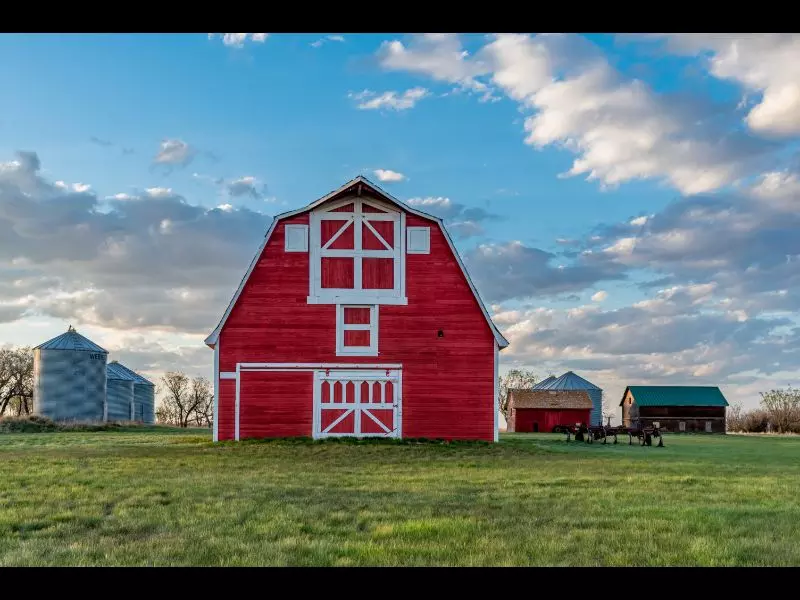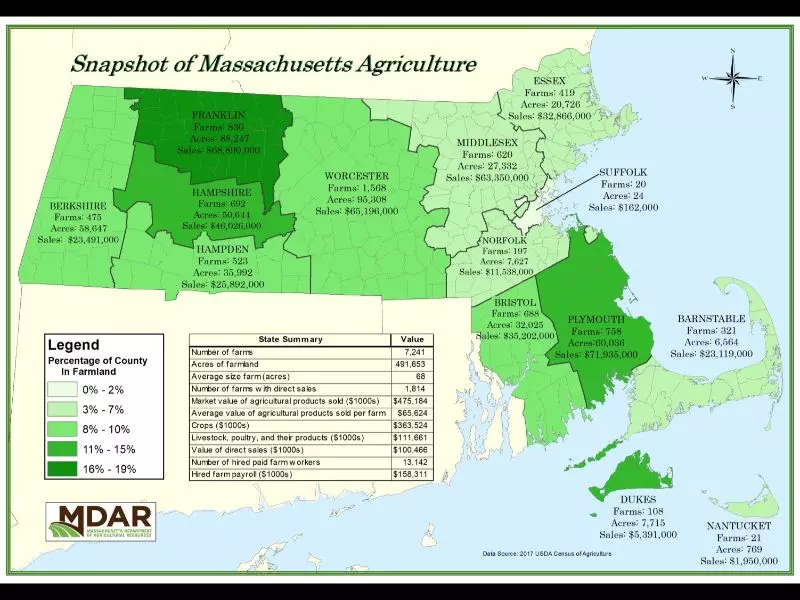
According to the Massachusetts Department of Agriculture, there are over 7,241 farms on 491,653 acres in the state.
With the average farm producing $65,624 worth of agricultural products on 68 acres, it's safe to say that barns are pretty close to an essential piece of infrastructure that helps farmers get the most out of their land.
Barns serve various purposes, from sheltering animals, their feed, and other supplies to protecting farm machinery and products from the elements, and are generally named in line with their purpose. Hog barns, dairy barns, tractor barns are pretty standard across the state, although the most common type of barn across the country are those used to house farm animals and their food.

Made primarily out of wood since the end of World War 2, barn construction has come a long way and now embodies modern wood, timber framing construction techniques designed to make them safer, beautiful to look at, more durable against the elements, and functional for the farm staff.
When clients approach us to construct a new barn on their property, we first have to dive into some choices that need to be taken, primarily regarding the materials used for the framing and the exterior shell. By and large, though, the biggest questions we have to answer are:
-
What framing style would work best given the climate and use?
-
Will the barn be a post-frame barn or a stick-framed one?
-
Will the siding be all metal, wood, or a combination of them both?
-
What material should the roof be, metal, asphalt, shingles, or a combination of materials?
Is there a perfect choice for framing?
In our experience, what is best is usually dictated by the environment, the need, and most importantly, the local building codes. For example, using metal for barn construction in a region with lots of humidity might reduce the overall lifespan of the structure, or if the client wants to build with wood, but local building codes only allow for a post-frame barn that requires stick framing. While these are extreme examples, they underscore the importance of working with a professional general contractor and construction company. As one of the leading barn construction, and wood framing companies in Western Mass, we always provide the proper guidance to our clients on what to do and what not to.
Overall, there are four different ways to frame a barn; while they all can be made to look identical on the outside, what separates them is the foundation and framing style chosen.
-
Conventional Framing or Stud Framing - barns built in this style can easily be converted into homes as they are easy to insulate and finish on the inside with drywall. While more expensive to build generally, they are ideal for farms where the plan is to convert the barn into a rustic-themed living area eventually.
-
Post Frame or Pole Barn Construction - The most economical way to construct a barn, this construction style is easily the most popular as it eliminates the need for a costly concrete foundation. However, as it is nearly impossible to insulate, it works best on farms where the barn is purely intended for a specific, functional purpose.
-
Post & Beam or Timber Frame Construction - The heavy-duty option amongst construction styles, timber frame barns are the most visually pleasing of the three. However, the cost of the raw material makes this style the most expensive as well.
What about siding & roofing
Like the framing, much of what can be done for barn siding and roofing depends on the weather and what local building codes allow. While wood & shingles give a certain aesthetic appeal that many of our customers find appealing, metal roofs are also popular due to their durability - it's not uncommon to see barns with metal roofs lasting 50 years or more.
The final decision
With all these options laid out, it's essential to understand that we've been in the business of wood framing and construction for over 20 years. With hundreds of projects across Western Mass, working with us for barn construction projects is a sure-shot first step towards completion on time and within budget.
